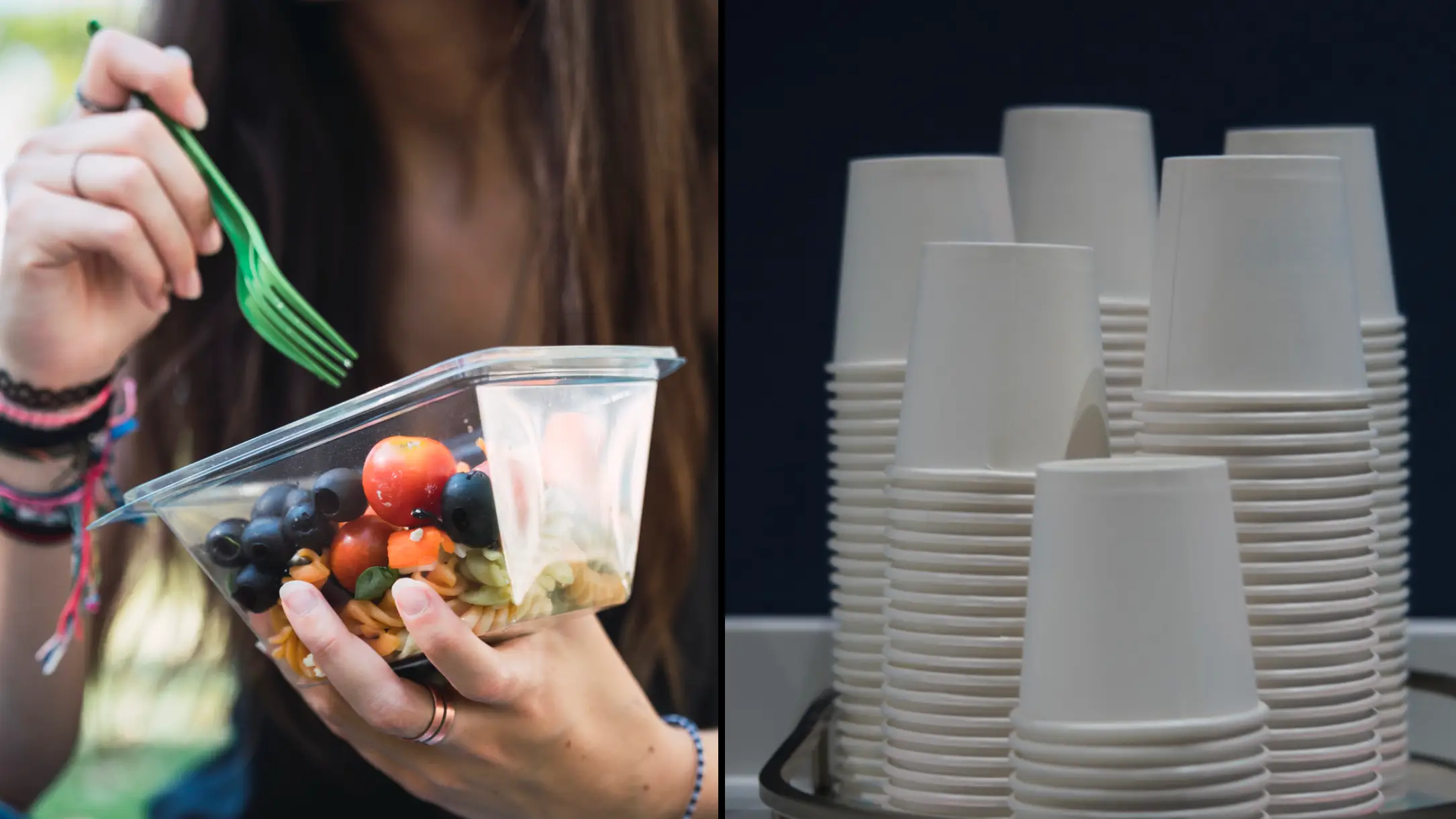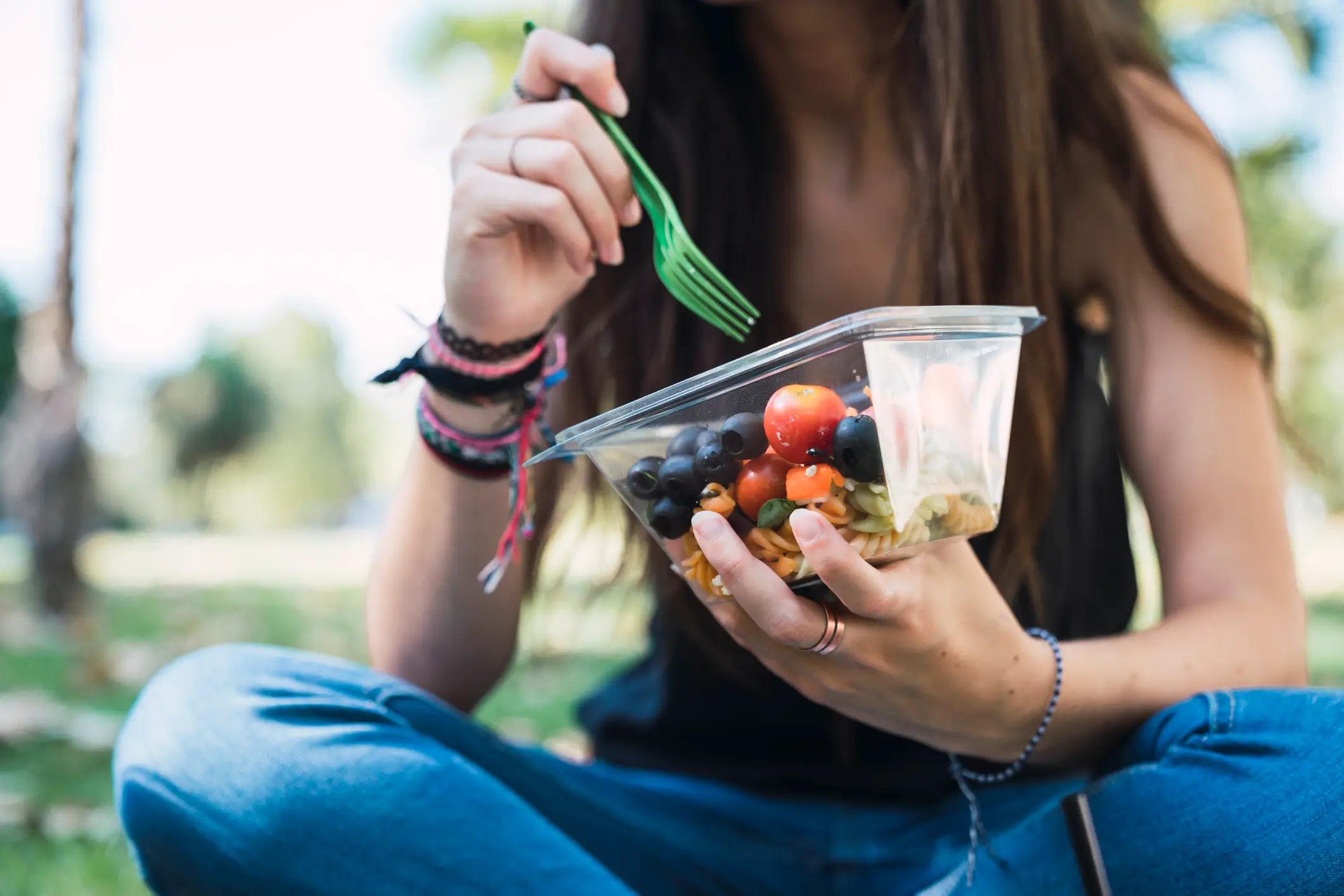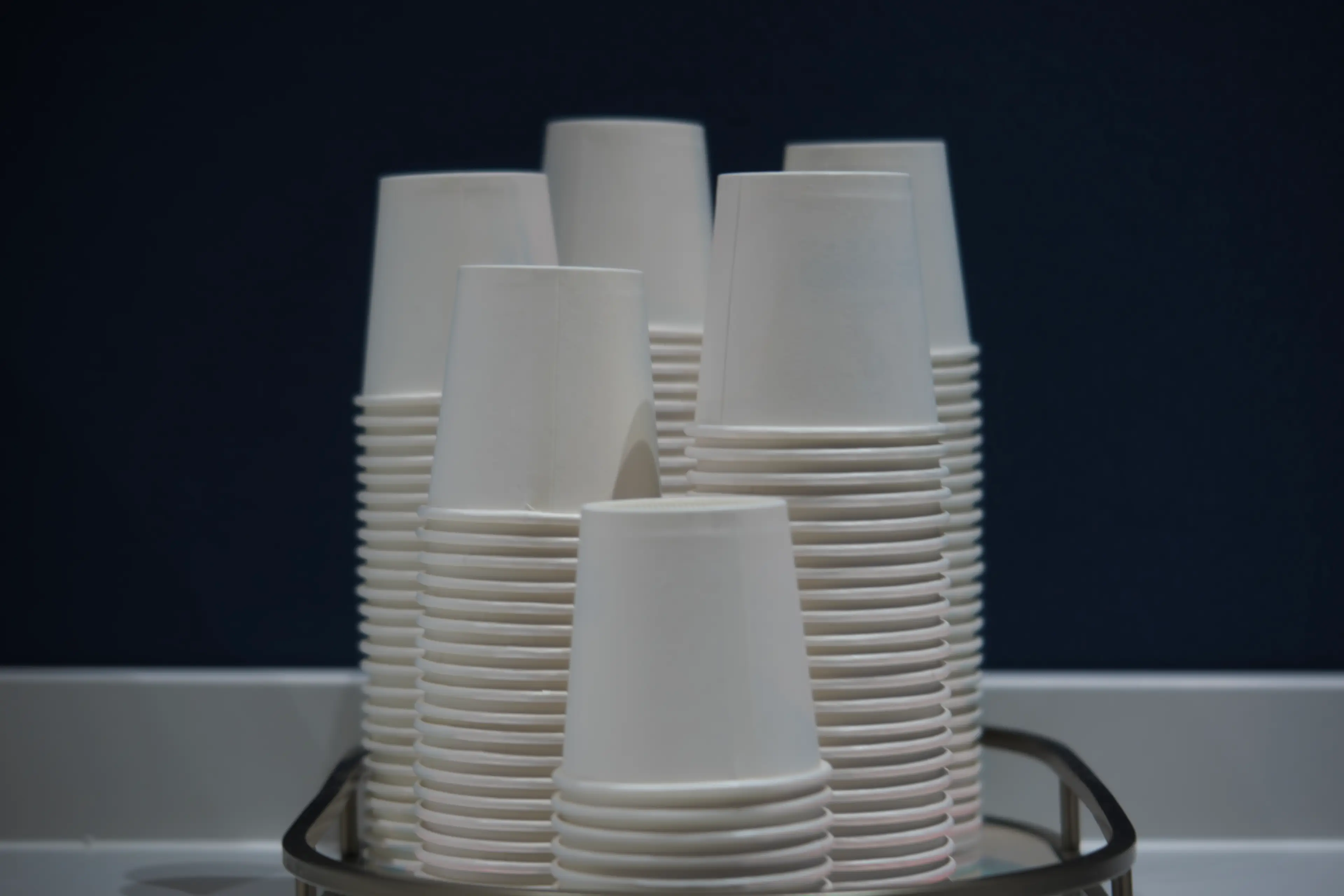
A new ban on polluting single-use plastics has come into force as of today (1 October).
Following the policy, which sees the government taking action to tackle the 'scourge of litter' and protect the environment from plastic pollution, seven everyday items will be restricted as the new law comes into force
As of today, no business - whether that's a retailer, takeaway, food vendor or part of the hospitality industry - will be legally allowed to sell such items.

Advert
"The ban on these items will include online and over-the-counter sales and supply, all types of single-use plastic, including biodegradable, compostable and recycled [and] items wholly or partly made from plastic, including coating or lining," the government's website states.
It also warned businesses to use up all 'existing stock' by 1 October, find 're-usable alternatives to single-use items' or use 'different materials for single-use items'.
It adds: "If you continue to supply banned single-use plastics after 1 October, you could be fined."
The seven items which are set to banned in England are single-use plastic cutlery, single-use plastic plates, trays and bowls as well as balloon sticks, polystyrene cups and food containers.
The ban, however, will not apply to single-use plastic plates, trays and bowls used as packaging in 'shelf-ready pre-packaged food items'.

This exemption is because such items will be included in the government's plans for an 'extended producer responsibility scheme', which is believed to incentivise producers to use less packaging and meet higher recycling targets.
To enforce the ban, local authorities will be carrying out inspections - be it asking to see records, chatting to staff members or even buying a product to try and catch you out - so it's advised to comply to avoid the risk of being fined.
Businesses can, however, appeal a fine 'if you can show that you did everything you reasonably could to avoid breaking any rules'.
Secretary of State for Environment, Food and Rural Affairs of the United Kingdom, Thérèse Coffey, said: "We all know the absolutely devastating impacts that plastic can have on our environment and wildlife. We have listened to the public and these new single-use plastics bans will continue our vital work to protect the environment for future generations.
"I am proud of our efforts in this area: we have banned microbeads, restricted the use of straws, stirrers and cotton buds and our carrier bag charge has successfully cut sales by over 97% in the main supermarkets."
Environment Minister Rebecca Pow added: "Plastic is a scourge which blights our streets and beautiful countryside and I am determined that we shift away from a single-use culture.
"By introducing a ban later this year we are doubling down on our commitment to eliminate all avoidable plastic waste. We will also be pressing ahead with our ambitious plans for a deposit return scheme for drinks containers and consistent recycling collections in England."
Topics: Environment, UK News, Food And Drink, Politics